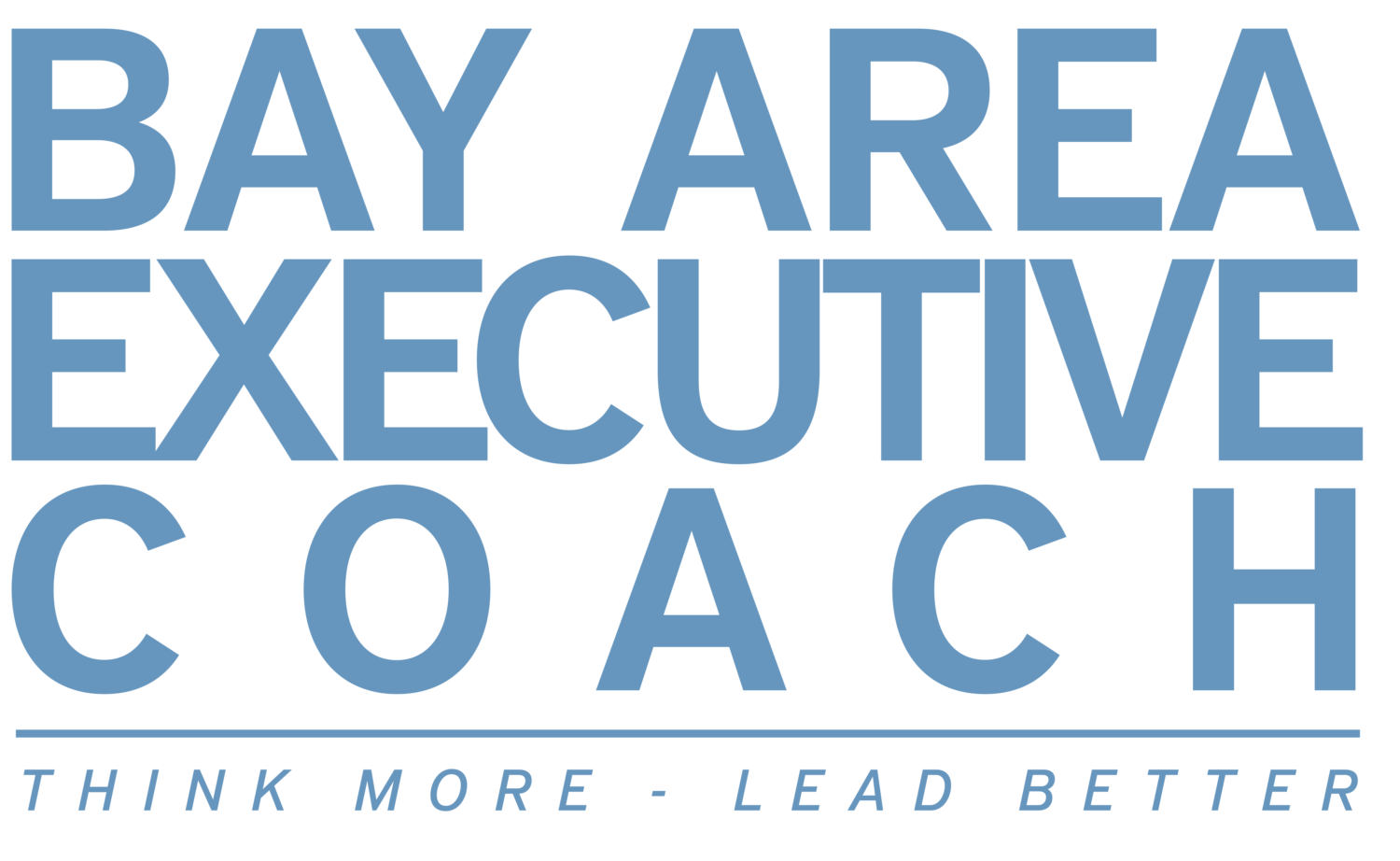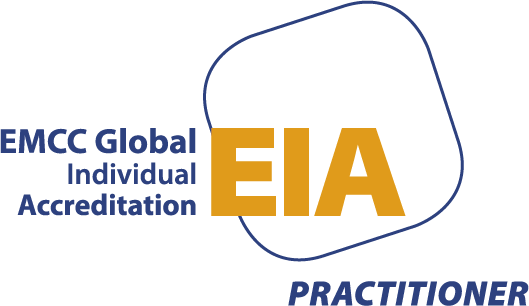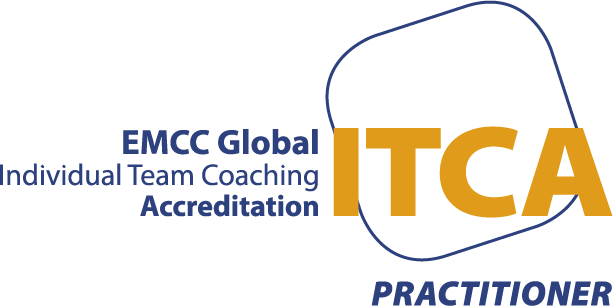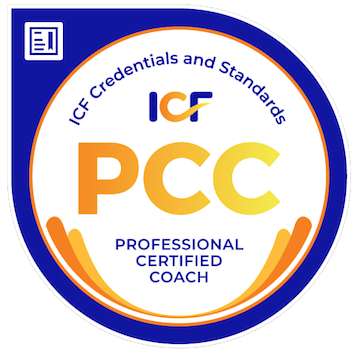Competitiveness, ambition, and innovation will always be important to success, but they must be tempered by core ethical principles.
What’s meant by “core ethical principles?” Here’s a basic definition:
“Ethical principles are universal standards of right and wrong prescribing the kind of behavior an ethical company or person should and should not engage in. These principles provide a guide to making decisions but they also establish the criteria by which your decisions will be judged by others.” 
With this definition in mind, let’s list 12 generally accepted ethical principles that guide the strong and emotionally intelligent leader or manager. After reviewing this list, challenge yourself to transparently rate which principles are part of your ethical core, and which ones you could either add or strengthen.
1.HONESTY: Be honest in all communications and actions. This is the foundation that undergirds every other ethical principle on this list. Ethical executives know that honesty is the cornerstone of trust, and trust is essential for effective leadership.
Honest executives don’t deliberately mislead or deceive others by misrepresentations, overstatements, partial truths, selective omissions, or any other underhanded means that distort the truth.
2. INTEGRITY: Maintain personal integrity. Integrity means being consistent in your ethical conduct and honest demeanor. It means maintaining a strong and lasting connection between your thoughts and words and your deeds.
Integrity sometimes requires moral courage, especially when the outcome is not favorable or pleasant. Leaders with integrity live by ethical principles even when there’s great pressure to do otherwise. They live in accordance with their beliefs and don’t sacrifice principle for profit.
3. PROMISE-KEEPING: Promises made and kept. Ethical executives are trusted because they make every effort to fulfill the letter and spirit of their promises and commitments. They don’t re-interpret prior agreements to work in their favor or create justifications to dodge their commitments. Their word is as good as their bond.
4. LOYALTY: Faithful to company, colleagues, and ethics. Ethical executives are loyal to their organization and the people they work with. They don’t go around making back-room deals benefiting them at the expense of the company or the people they work for or with.They don’t bad-mouth others to achieve gain for themselves.
Ethical executives place a high value on protecting and advancing the lawful and legitimate interests of their companies and their colleagues.
But loyalty shouldn’t be blind. Ethical executives disengage from situations that are unlawful or morally wrong. They practice loyalty only so long as that loyalty is to untainted and honest entities. They don’t place loyalty above other ethical principles or use loyalty as an excuse for unprincipled conduct.
5. FAIRNESS: Practice fairness in all their dealings. Ethical executives are fundamentally fair executives. They weigh decisions and actions on relative merits, without bias. They don’t seek to gain or maintain undue advantages or benefit from another’s mistakes or difficulties. They’re objective in their fact finding, analysis, and courses of action.
Such leaders also treat everyone the same. They are balanced in their dealings with people whether they are granting opportunities or holding people accountable to meeting their expectations.
6. CARING: Show compassion and a genuine concern for the well-being of others. Ethical executives are caring, compassionate, benevolent, and kind. They always consider the business, financial, and emotional consequences of their actions on others. Ethical executives seek to accomplish their business objectives in ways that project compassion and concern for everyone affected, always promoting the greatest common good.
7. RESPECT FOR OTHERS: Treating everyone with respect. Ethical executives demonstrate respect for the dignity, autonomy, privacy, rights, and legitimate interests of all those under their auspices. They’re courteous and treat all people with equal respect and dignity, regardless of gender, race, religion, or national origin. Ethical executives are role models in this regard for others in the organization.
Whether a leader is greeting the receptionist, an intern, rising star, or chairman of the board, they treat them with respect.
8. LAW ABIDING: Obey the law. Ethical executives obey and comply with the letter and the spirit of all the laws, rules, and regulations applicable to their business activities. As they see it: the rules are the rules. There’s no cutting corners or rationalizations about breaking the law. This is true when conducting business in other countries as well. There are too many stories of company staff committing unethical acts in foreign countries to advance business interests. Just don’t do it….
9. COMMITMENT TO THE COMMITMENT. Doing their honest best at all times and in all situations. Ethical executives pursue excellence in performing their duties and constantly strive to increase their proficiency in everything they do on the job. They don’t allow themselves to get spread too thin by taking on numerous board positions that pay well or making other commitments that will undoubtedly be distracting and time-consuming. Instead, they give their best to their number one commitment all the time.
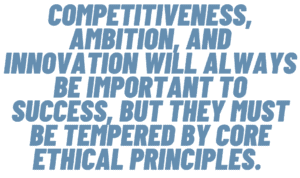 This is not to say that leaders can’t have outside interests and endeavors. Of course, they can, and probably should. The intent here is to know when your outside activities are getting in the way of giving a full effort to your core leadership role.
This is not to say that leaders can’t have outside interests and endeavors. Of course, they can, and probably should. The intent here is to know when your outside activities are getting in the way of giving a full effort to your core leadership role.
10. LEADERSHIP: They take it seriously and lead with the right motive. Ethical executives are conscious of the responsibilities and opportunities of their position of leadership and seek to be positive ethical role models by their own conduct. They accept the fact that people look up to leaders and expect leaders to behave in an exemplary manner. Such leaders also accept their positions because they aim to serve and develop others – they don’t do it for power and prestige. They have the right motive behind their commitment to taking on a leadership role.
11. ACCOUNTABILITY. Take responsibility for what happens. Ethical executives acknowledge and accept personal accountability for their decisions, both the good ones and the bad ones. They don’t hog the glory when things go right and they don’t shirk their responsibility to own-up to mistakes and mis-calculations. Being accountable is the right thing to do and great leaders are. See our leadership video on a timeless principle from the Jim Collins book, Good to Great for more on this.
As you look at your leadership and think of ways you might inspire others to follow you based on the person you are as opposed to the title you carry, we hope these principles will guide you.
If this article has helped you, perhaps executive coaching may be a good next step for you to accelerate the growth of your leadership effectiveness. If you’d like to consider this and have a conversation with us, please send a message via our Contact Form.
If you’re interested in more ways to improve your company, read our articles “How Executive Coaching Services Can Help Your Company” and “11 Ways to Make Your Company a ‘Best Place to Work'”.
To learn about resolving ethical dilemmas in executive coaching, watch our video:
Featured photo is from ©Emmy E via Pexels. Secondary photo is from ©RDNE Stock project via Pexels.
